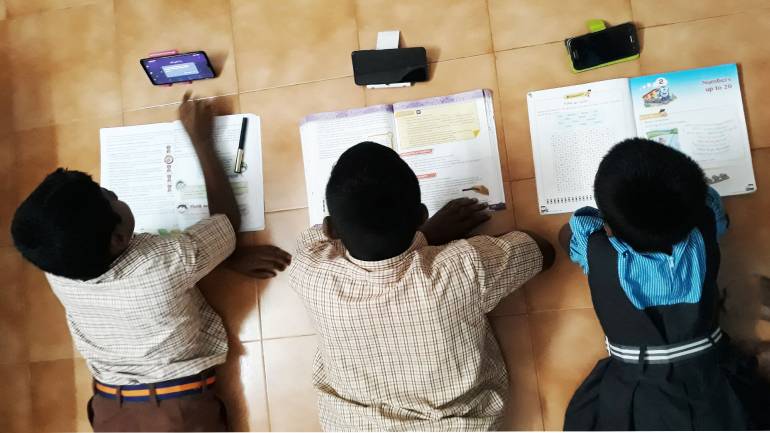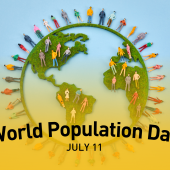International Day of Education on January 24

UN celebrates the International Day of Education on January 24.
“Without inclusive and equitable quality education and lifelong opportunities for all, countries will not succeed in achieving gender equality and breaking the cycle of poverty that is leaving millions of children, youth, and adults behind,” states the UNESCO website.
Today, 258 million children and youth still do not attend school. 617 million children and adolescents cannot read and do basic math. Less than 40 per cent of girls in sub-Saharan Africa complete lower secondary school. Some 4 million children and youth refugees are out of school.
UNESCO voices out that “their right to education is being violated and it is unacceptable.” The United Nations wants humans to recognize the extent of want in this world.
The fundamental attention of the International Day of Education is to offer excellent and same education to each group of people. It highlights how excellent education can convey peace and improvement worldwide. Making people aware of diverse initiatives, traits taken with the aid of using the government, organizations, etc.
“Transforming the destiny, calls for a pressing rebalancing with each other, with nature and with technology that permeates our lives, bearing step forward possibilities whilst elevating extreme issues of equity, inclusion, and democratic participation, said Sister Thiraviya Regina Rajam CIC, Vice Principal and assistant Professor of Madonna Arts and Science college for Women, Madurai, in the Southern Indian State of Tamil Nadu.
The nun said that education is the key to charting the direction closer to extra justice and sustainability, however, it's failing hundreds of thousands of children, youngsters, and adults, growing up in poverty, violence, and exploitation. The pandemic of Covid 19 has exacerbated the inclusive educational crisis.
“Reliance on virtual technology for studying has deepened exclusion and gender inequalities. Without remedial action better, aid to teachers, and accelerated financing, studying losses, and faculty dropout will keep rising, reversing development closer to all of the sustainable development. Goals and depriving youngsters of a destiny of dignity and opportunity,” Sister Regina Rajam said.
Professor Dr. S.V.L. Michael, Ph.D., the principal of Madonna Arts and science college for women noted that education is nothing more than self-realization and realization of life. Education is the medium through which the inculcation of social and personal values occurs. Education should prepare students' minds to focus on earning knowledge and learning value.
“Education should be treated equally especially for deprived people. Everyone should be treated equally, and everyone should be taught to have an opinion. Empathy and passion should be part of the current education system,” professor Michael said.
Professor Michael noted that the purpose of education is to provide students with meaningful and personal experiences. This is in order to form students as integrated and cultured individuals who will be catalysts and dedicate themselves to social change and social transformation.
Dr. Sister. G. Celine Sahaya Mary, Principal of Fatima College, Madurai, advises to change the higher education in India, phenomenally with the onset of the pandemic and its eventual repercussions. In fact, with the ever-increasing waves of COVID-19, the Higher Educational Institutions (HEIs), have been striving hard to surf against the rising waves of excellence in education and capacity building.
“In their continued and newer attempts to move from local to global access till the pandemic hit hard. Presently, with the innumerable and unforeseen challenges quaking HEIs and with the impositions of the lockdowns the bustling colleges echoed with an eerie silence. Physical classrooms gave way to the virtual ones,” the nun said.
The sudden decision of the Higher Educations Authorities to ‘Go Digital’ was not an easy and smooth transition. The teachers reinvented new ways to cope with it by equipping themselves and exploring all online educational tools and platforms to make teaching/learning activities.
The whole new process of education lost all the charm of classroom interaction and the flavour of face-to-face teaching well spiced with timely mentoring. Now, when Higher Education is at a crossroads, it is time that the HEIs rethink and think ahead.
The need to transform education by employing an novel approach that meets the demands of the upcoming norms and the needs of the youth thus creating an exclusive educational culture grounded on human values.”
Radio Veritas Asia (RVA), a media platform of the Catholic Church, aims to share Christ. RVA started in 1969 as a continental Catholic radio station to serve Asian countries in their respective local language, thus earning the tag “the Voice of Asian Christianity.” Responding to the emerging context, RVA embraced media platforms to connect with the global Asian audience via its 21 language websites and various social media platforms.













